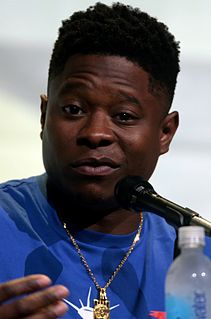A Quote by Nirmala Sitharaman
The narrative related to economics is, I think, very well understood even by the common man.
Related Quotes
Common sense is not something rigid and stationary, but is in continuous transformation, becoming enriched with scientific notions and philosophical opinions that have entered into common circulation. 'Common sense' is the folklore of philosophy and always stands midway between folklore proper (folklore as it is normally understood) and the philosophy, science, and economics of the scientists. Common sense creates the folklore of the future, a relatively rigidified phase of popular knowledge in a given time and place.
I think there's still a lot of room in 'Riverdale' for that. Asexuality is not one of those things, in my research, that is so understood at face value, and I think maybe the development of that narrative could also be something very interesting and very unique and still resonate with people and not step on anyone's toes.
We have a common enemy. We have this in common: We have a common oppressor, a common exploiter, and a common discriminator. But once we all realize that we have this common enemy, then we unite on the basis of what we have in common. And what we have foremost in common is that enemy - the white man. He's an enemy to all of us. I know some of you all think that some of them aren't enemies. Time will tell.
So no, I’m not too big on religion...and not very fond of politics or economics either...And why should I be? They are the man-created trinity of terrors that ravages the earth and deceives those I care about. What mental turmoil and anxiety does any human face that is not related to one of those three?
I'm obsessed with this idea of storytellers and people who have a narrative, and sometimes sustain a relationship because they're telling a narrative and someone is listening to that. Often the nature of the relationship is determined by how well they tell the story, or someone else's ability to suspend disbelief, or infuse into their narrative something which they may not even be aware of.
I do sense, as compared with let's say the early '50s, there's somewhat more of a careerism. I don't think it's anything special to economics; it's equally true with physics or biology. A graduate education has become a more career-oriented thing, and part of that is because of the need for funding. In fact, that's a much worse problem in the natural sciences than it is in economics. So you can't even do your work in the natural sciences, particularly, and even to some extent in economics, without funding.
What I think is dreadful about art is the way it's related to the money afterward. Not when you do it... But after that, it's like 5,000 rich people have access to it. A movie, even though it can be a bad movie or a good movie, it is more democratic. The people who buy my films, the people who buy my installations it's sometimes a foundation or a museum. When it's a foundation, it's related to very, very, very rich people - who are your enemies! Your enemies are feeding you. But you're not meeting them. So it's a very strange thing.

































